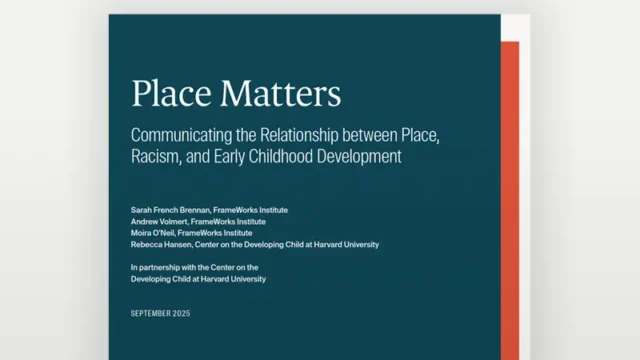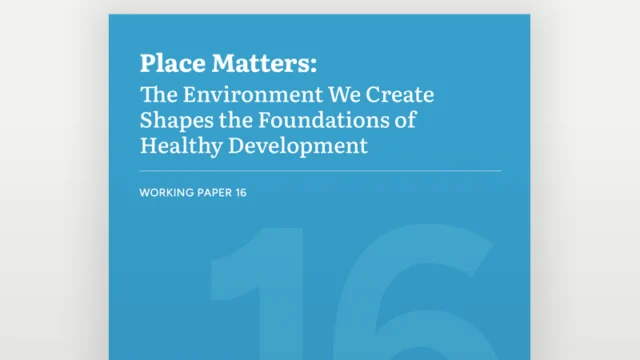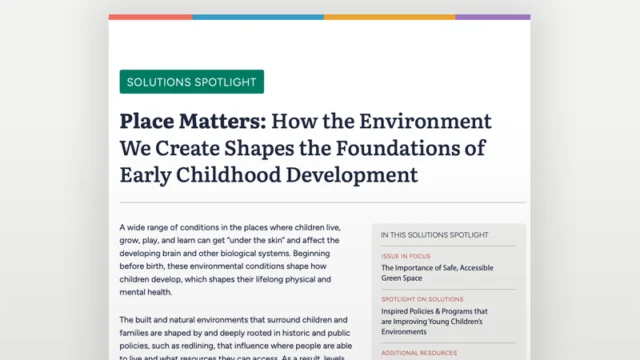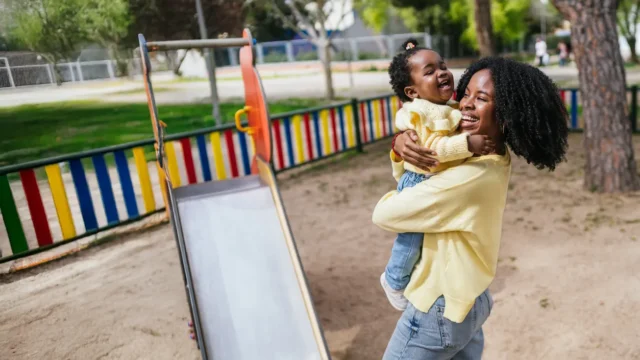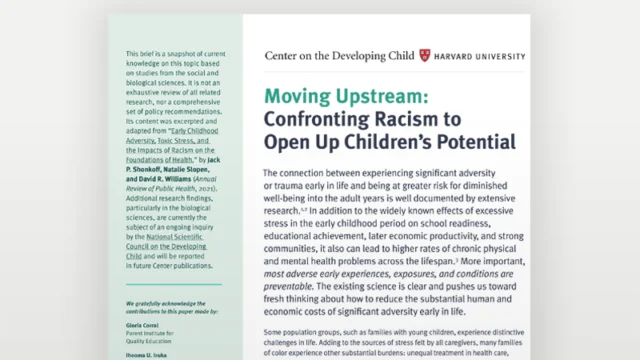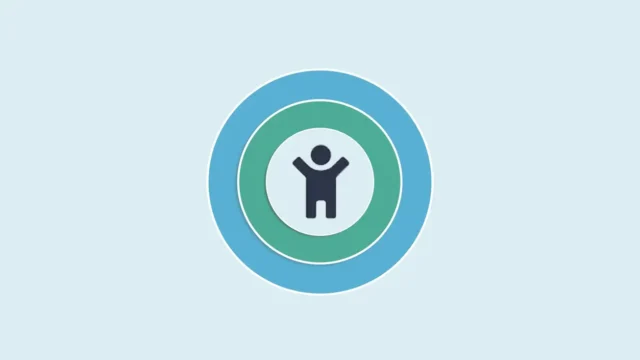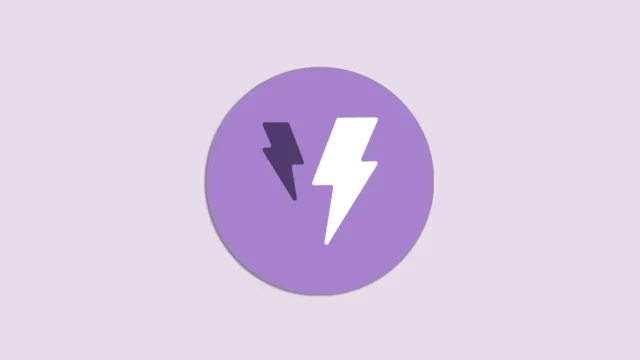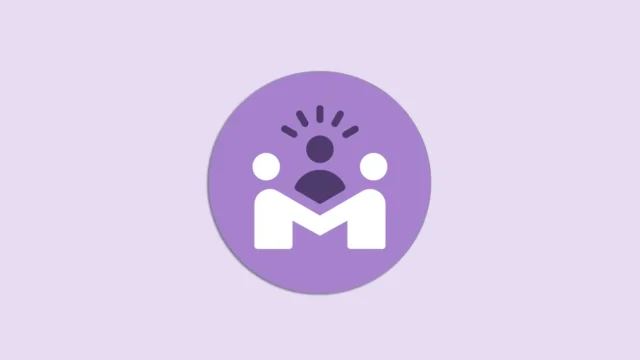Policy Q&A: How a Cash Prescription Program Is Helping a Michigan Mom Provide Stability for Her Children
Quianna Jenkins shares how Rx Kids has reduced her family’s financial stress, helping her be more present with her children and plan for a healthier future.
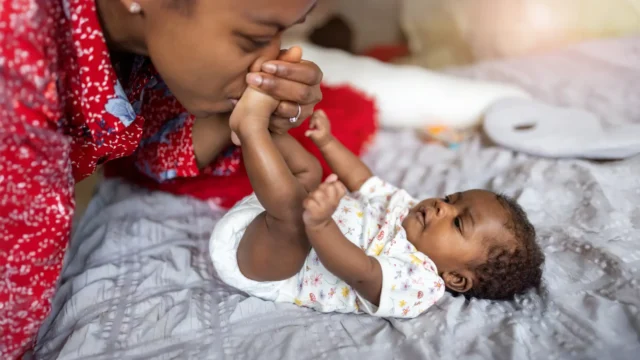
In our Policy Q&A series, we’re featuring a diverse array of perspectives on the many ways that science, community expertise, and lived experience can inform policy and program design to support healthy development during the earliest years.
The relationships that young children have with caring adults are central to early development. These foundational relationships help build healthy brains and bodies, and they can provide a critical buffer against sources of stress and the potential impacts of adversity.
But for caregivers experiencing their own high levels of stress—for example, navigating poverty, homelessness, or other circumstances that make it difficult to access needed resources—it can be more challenging to provide attentive caregiving. This underscores the importance of policies and programs that support caregivers and families.
Rx Kids is one such program. Launched in 2024 in Flint, Michigan, Rx Kids provides unconditional “cash prescriptions,” with the goal of strengthening families’ economic security and improving health during a critical period. Participants receive $1,500 during pregnancy and $500 a month for up to the first year of their baby’s life—with no income requirements and no strings attached. It is the first universal maternal and infant cash allowance program in the country.
“As much as we are trying to alleviate poverty and address economic instability, we are sending a strong message of love,” said Mona Hanna, MD, MPH, director of Rx Kids and Associate Dean for Public Health at Michigan State University College of Human Medicine, during a webinar hosted by the Center on the Developing Child. “This is about walking alongside [families] during this really critical mom-infant period, which not only is so important developmentally, but turns out to be the most economically vulnerable.”
For many families, income plunges and poverty spikes right before the birth of a child—and this instability continues throughout their first year. But evidence suggests that cash transfer programs can help buffer against these impacts, help families meet basic needs, and improve health outcomes. To learn more about the wide range of research-backed benefits of cash transfer programs during early childhood, visit the Rx Kids website.
Quianna Jenkins, a mother of three, joined the program in February, after the birth of her youngest son. In this Q&A, Jenkins shares how Rx Kids has reduced her family’s financial stress, helping her be more present with her children and plan for a healthier future.
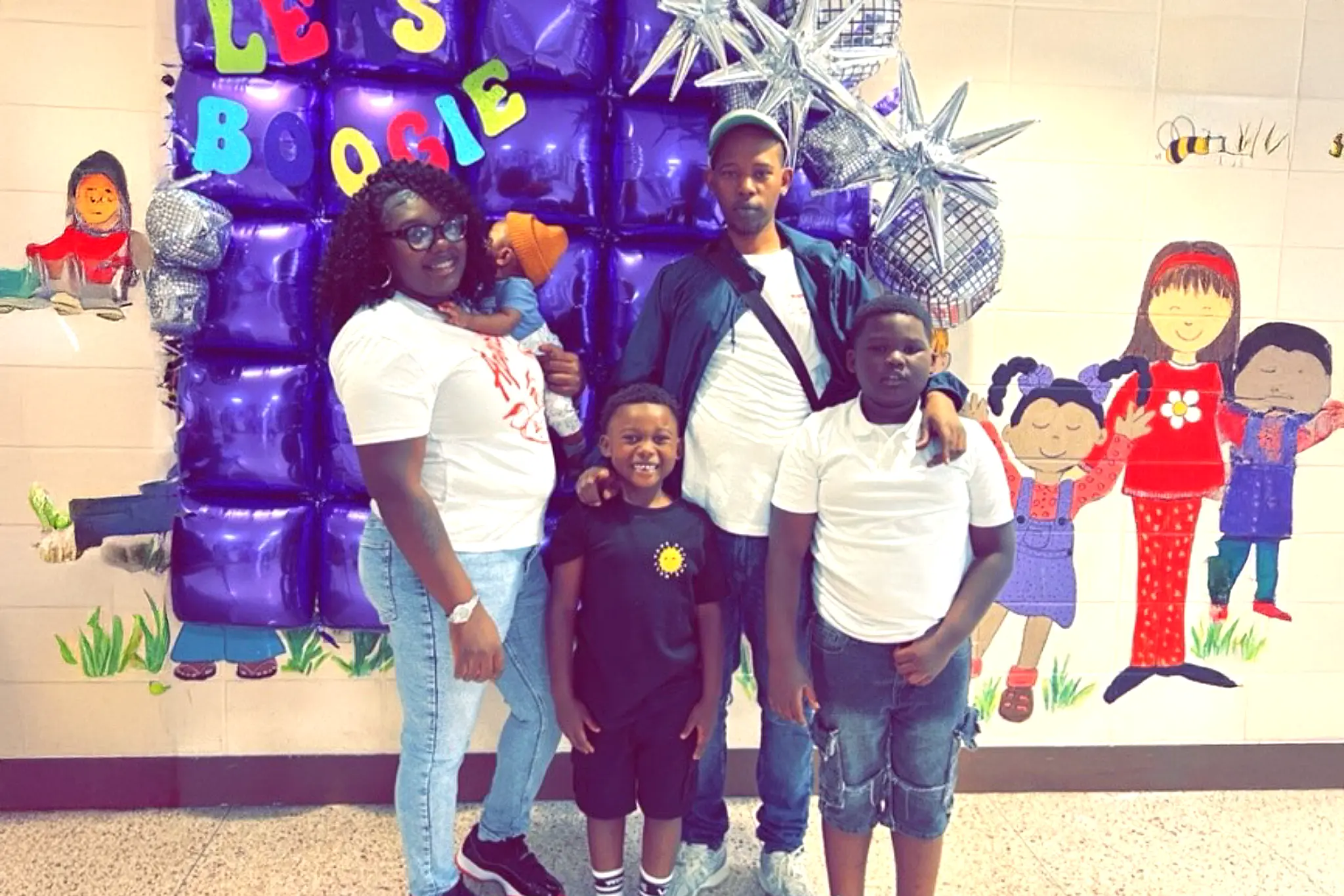
Tell us a little about yourself and your family.
I’m a proud mom of three amazing boys. Family means everything to me. My children keep me going—they’re my motivation, my joy, and the reason I work so hard every day.
I work as a school paraprofessional. I’ve been doing it for four years, and I truly love what I do. Supporting students, especially those who need a little extra help, is incredibly rewarding. I get to be part of their growth and learning.
How did you first enroll in Rx Kids and what was your experience?
“It felt like someone actually understood what families really need.”
I have an advocate at the YMCA here—Tamika—and she told me that Rx Kids was coming to Kalamazoo. I had a Cradle community baby shower, and they also had more information about the program.
Once I looked more into it, it felt like a blessing. The idea of receiving monthly financial support during pregnancy and through the baby’s first year—it felt like someone actually understood what families really need.
And joining was simple, which honestly surprised me. I expected it to be complicated, but it wasn’t. After signing up, I remember feeling so much relief. It meant I could breathe easier, especially with everything that comes with having a newborn.
Knowing that you had your older children before joining the program, how was it different to have an infant at home with the support of Rx Kids?
It was night and day. With my older kids, I was always stressed about how I’d afford diapers or even gas to go to a doctor’s appointment. The stress of not knowing if you can cover the basics weighs heavily. It’s like you’re in survival mode all the time. It’s a lot. And that stress affects everything—your mood, your patience, your energy as a parent.
With my youngest, I don’t feel like I’m constantly catching up—I get to actually be present and enjoy my baby’s first year.
How has Rx Kids helped you focus on your family’s long-term health and well-being, as well as immediate needs?
I have room to plan now. For example, because of that help from Rx Kids, now I can buy in bulk and save money. I can go to Sam’s Club and buy a big box of Pampers, and that will last me until probably two months from now. I’m not just reacting—I can plan for what’s best for my kids.

It also helps me focus on school. I want to be a special education teacher, and with Rx Kids, I was able to go part-time while working on getting my bachelor’s in special education.
I’m learning to save my money—and I’m teaching my kids that, too. I’m learning that credit is important. I’m also saving to buy a car outright, so I don’t have to worry about a car payment every month in the future. The Rx Kids money just made me think in a totally different way—ahead of the game.
I’m trying to do everything I can now to not struggle again after the Rx Kids money ends. I know it’s only for a year, and I’m planning for that.
Beyond financial support, what other changes have you noticed since joining Rx Kids?
I’ve felt more confident as a parent. When you’re not constantly worried about money, you can actually enjoy parenting more. I’m not as anxious or overwhelmed as I was before the program, which means I can show up more fully for my kids.
I’m really appreciative of this program. I can’t thank them enough. And I really feel like the biggest thing is confidence. I now know that if my sons need something, I can be there.
From your perspective, what has been most beneficial about the program?
The freedom and dignity. They trust me to know what my family needs most. It’s not about restrictions or judgment—it’s about support. It’s like, we see you, we see you working hard, and we’re going to help you out.
“They trust me to know what my family needs most. It’s not about restrictions or judgment—it’s about support. It’s like, we see you, we see you working hard, and we’re going to help you out.”
Every family’s needs are different, and every month is different. For example, one month you might be short on rent or diapers, and you use the money for that. But the next month you might not be, and you can save it. If I don’t need to buy something that month, I save it for a rainy day. It’s really based on your needs. Whatever helps your family.
Not everyone understands programs like Rx Kids. What would you most like others to know, especially communities that are interested in starting their own family cash transfer programs?
I’d say, look at the families. We’re hardworking parents doing our best.
Every parent deserves the chance to start their child’s life with stability and support. If other communities are considering it—I’d say, absolutely do it. Listen to the parents. Trust them. It doesn’t take much to make a huge difference.
The Center on the Developing Child is committed to elevating a variety of perspectives around supporting healthy development in the earliest years. The views and opinions expressed by Policy Q&A subjects are those of the individual and do not necessarily represent those of the Center.
